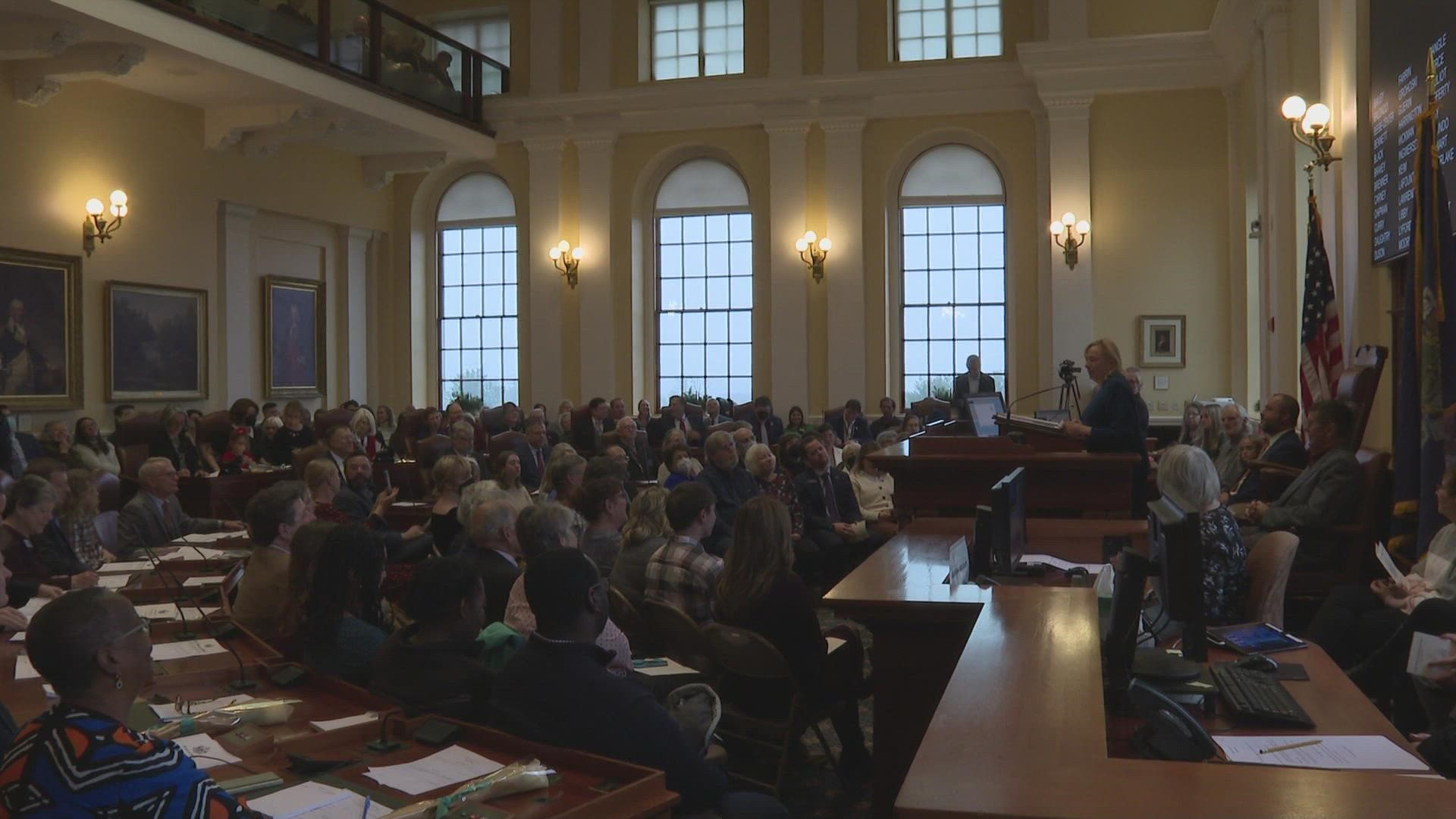AUGUSTA, Maine — After Gov. Janet Mills' emergency energy assistance bill failed to clear the Senate on Wednesday, two state senators have proposed an amendment to the bill, called LD 1.
Mills announced the Emergency Winter Energy Relief Plan last Tuesday to help low-income and middle-class families in Maine through the upcoming winter season amid nearly record-high energy prices.
The bill passed in the Maine House of Representatives, and the Maine Senate voted 21-8 in favor of the bill. But because it didn't clear a two-thirds majority in the Senate, it failed to pass.
According to a release from the Maine Legislature, the bipartisan amendment proposed by Sen. Nicole Grohoski, D-Ellsworth, and Sen. Rick Bennett, R-Oxford, reduces by nearly half the total spending on direct checks, targets immediate relief on a sliding scale to those with a high energy burden, increases emergency funds for others in need to be delivered through local community action agencies, and leaves untouched the roughly $160 million in Federal Medical Assistance Percentage (FMAP) funds to assist the needs for which they are intended, such as mental health, nursing homes, developmental services, and services for people with brain injuries.
A public hearing on the proposal has been scheduled for 1 p.m. on Wednesday, Dec. 21. Lawmakers, interested parties, and members of the public can participate in-person or via zoom.
“I have heard from many of the people I represent who believe that the emergency relief ought to be targeted to those in need,” Bennett said in the release. “Spending our surplus accounts dry leaves no money to deal with other pressing issues such as our opioid epidemic, our failing nursing homes, and the dire shortage of direct care workers for people who have been promised services.”
“Many of our neighbors are in urgent need of heating and housing relief and I believe it is our duty to both help and act responsibly with state funds,” Grohoski added. “The majority of the feedback I’ve received from constituents on this proposal is that the checks are too small for those in need and too large for others. We propose a different way of distributing funds, based on data available from the Office of the Public Advocate about energy use and costs.”
Many Democrats in the Maine Legislature were left frustrated and concerned after the bill failed to pass the Senate on Wednesday.
"There will be people that will do things that are extraordinary, and we will have people end up dying because of it and that I know," Senate President Troy Jackson said Wednesday night.
"They turned their backs on Maine people and I think they'll hear from Maine people. I feel concerned about people freezing in their own homes in the coming weeks," Mills told reporters Thursday morning.
Senate Assistant Minority Leader Lisa Keim said Wednesday that Senate Republicans want to provide this relief to Mainers, but they want to hear from them first.
"A conversation between a few elected leaders is not a good replacement for actual transparency and accountability for a public hearing," Keim said.
Keim added as soon as the appropriations committee is appointed, this bill can go through the public hearing process.
"I'm ready to do this. If there were people here, our members are ready to work this bill publicly," Keim said.
During the week of Dec. 12, Mills is distributing one-time payments of $500 to approximately 13,000 low-income households of seniors 65 or older to help pay for home heating costs.
“The Governor is committed to helping Maine people stay safe this winter, and she will continue to work with legislative leadership on a path forward for the emergency heating aid proposal," a spokesperson for the Mills Administration told NEWS CENTER Maine in an email Tuesday. "The amendment unveiled today appears to eliminate an agreement negotiated by Republicans that helped the heating aid proposal win strong bipartisan approval in the House. The already-passed compromise proposal, while not perfect, was negotiated by Republicans and Democrats, reflects concessions and consensus from both parties, and was overwhelmingly approved by most of the Legislature. We hope that we can find a path forward that preserves the progress already made.”

